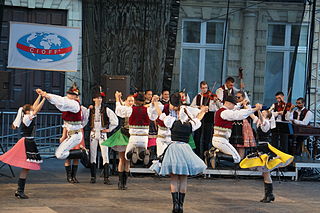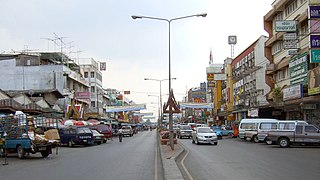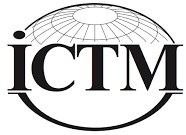AIESEC is an international "youth-run" and led, non-governmental and not-for-profit organization that provides young people with business development internships. The organization focuses on empowering young people to make a progressive social impact. The AIESEC network includes approximately 40,000 members in 120+ countries.

The European Law Students' Association (ELSA) is an international, independent, non-political, non-profit, non-governmental organisation run by and for law students. ELSA-activities comprise a large variety of academic and professional events that are organised to fulfill the stated vision of ELSA.
The consultative status is a phrase that has been in use since the establishment of the United Nations and is used within the UN community to refer to "Non-governmental organizations (NGOs) in Consultative Status with the United Nations Economic and Social Council". Also some international organizations could grant Consultative Status to NGOs. Organization for Security and Co-operation in Europe (OSCE) could grant Consultative Status in the form of "Researcher-in-residence programme" : accredited representatives of national and international NGOs are granted access to all records and to numerous topical compilations related to OSCE field activities.
The culture of Thailand is a unique blend of various influences that have evolved over time. Local customs, animist beliefs, Buddhist traditions, and regional ethnic and cultural practices have all played a role in shaping Thai culture. Thainess, which refers to the distinctive qualities that define the national identity of Thailand, is evident in the country's history, customs, and traditions. While Buddhism remains the dominant religion in Thailand with more than 40,000 temples, Islam, Christianity, and other faiths are also practiced.

The International Sociological Association (ISA) is a non-profit organization dedicated to scientific purposes in the field of sociology and social sciences. It is an international sociological body, gathering both individuals and national sociological organizations. The ISA was founded in 1949 under UNESCO and it has about 4,500 individual and 45 collective members, hailing from 167 countries. Its sole purpose is to "represent sociologists everywhere, regardless of their school of thought, scientific approaches or ideological opinion" and its objective is to "advance sociological knowledge throughout the world". Along with the Institut International de Sociologie (IIS), it is seen as a world-leading international sociological organization.

Presbyterian Boys' Secondary School (PRESEC) is a secondary boarding school for boys. It is located in Legon, Accra, Ghana. It was founded in 1938, under the auspices of the Presbyterian Church of the Gold Coast. The Basel missionary-theologian, Nicholas Timothy Clerk (1862–1961), who served as the first Synod Clerk of the Presbyterian Church of the Gold Coast from 1918 to 1932, used his tenure to advocate for the establishment of the secondary school. The school has ties with its sister schools, Aburi Girls' Senior High School and Krobo Girls Senior High School.
Joseph Hanson Kwabena Nketia was a Ghanaian ethnomusicologist and composer. Considered Africa's premier musicologist, during his lifetime, he was called a "living legend" and "easily the most published and best known authority on African music and aesthetics in the world", with more than 200 publications and 80 musical compositions to his credit.

The International Federation of Inventors' Associations (IFIA) is a non-profit, nongovernmental organization founded in London under the supervision of the United Nations, on July 11, 1968, by inventor's associations of Denmark, Finland, Germany, Great Britain, Norway, Sweden and Switzerland.
International Association of Democratic Lawyers (IADL) is an international organization of left-wing and progressive jurists' associations with sections and members in 50 countries and territories. Along with facilitating contact and exchange of views between and among lawyers and lawyers' associations of all countries, the IADL works to conduct research on legal issues affecting human, political and economic rights, organizes international commissions of enquiry and conferences on legal and judicial concerns, and takes part in international legal observer missions. Through its activities the Association works as a recognized consultative organization with the United Nations through ECOSOC, UNESCO and UNICEF.
The International Research Center for Traditional Polyphony is an academic organization focused on the study of the phenomenon of traditional vocal polyphony. It is a part of Tbilisi Vano Sarajishvili State Conservatory. Establishment of IRCTP was announced during the First International Symposium of Traditional Polyphony in 2002, and it was logistically established by the order of the Rector of Tbilisi State Conservatory in February 2003. Its director is Rusudan Tsurtsumia. The head of its International Bureau is Joseph Jordania. Central activity of the Polyphonic Center is organizing biannual symposia, with subsequent publication of the presented papers, fostering dissemination of the knowledge on human musical cultures and establishing close professional contacts between ethnomusicologists interested in study of the phenomenon of traditional choral singing.

Music archaeology is an interdisciplinary field of study that combines musicology and archaeology. As it includes the study of music from various cultures, it is often considered to be a subfield of ethnomusicology.

The International Council of Organizations of Folklore Festivals and Folk Arts is an international nongovernmental organization (NGO) in Official partnership with UNESCO and is accredited to provide advisory service to the Committee of the UNESCO Convention for the Safeguarding of Intangible Cultural Heritage. CIOFF has 63 full members, 21 associate members and 18 corresponding members worldwide and 3 partner members. Its headquarters are in Confolens in France. Full members are National Sections with the aim to preserve traditional art, to organize Folklore Festivals or similar activities as well as unite voluntary organizations, working in the field of dance, music, costumes, customs and ethnography. The National Sections belong to sectors in the organization according to their geographic location.

The International Federation of Women Lawyers (IFWL), in Spanish Federación Internacional de Abogadas (FIDA), is an international non-governmental organization (NGO) that enhances the status of women and children by providing legal aid, legal literacy and education programs, and through advocacy, law reform, research and publications.
Bangkok International Preparatory and Secondary School, or Bangkok Prep, is an independent international school based on the National Curriculum of England located in Bangkok, Thailand. Established in 2003, the school is now in its 20th year. 1,600 students are enrolled at Bangkok Prep, representing 50 nationalities.

Phra Nakhon Si Ayutthaya, or locally and simply Ayutthaya is the capital of Phra Nakhon Si Ayutthaya province of Thailand. Ayutthaya was the capital of the Ayutthaya kingdom. Located on an island at the confluence of the Chao Phraya and Pa Sak rivers, Ayutthaya is the birthplace of the founder of Bangkok, King Rama I. The ruins of the old city are preserved in the Ayutthaya Historical Park.

The Siam Society Under Royal Patronage was established in 1904 with a mission to promote knowledge of the culture, history, arts, and natural sciences of Thailand as well as those of neighbouring countries. The premises of the Society in Bangkok, Thailand on Asok Montri Road include a library with many rare books and the Kamthieng House Museum in a historic teak house. The Society has a regular programme of lectures, study trips, cultural events, and music performances. The Society publishes two scholarly journals, the Journal of the Siam Society and the Natural History Bulletin of the Siam Society, and several books. The Society is involved in preservation of heritage through the Siamese Heritage Trust. The membership includes people of around 60 nationalities.
Ebenezer Laing, was a Ghanaian botanist and geneticist who served as the Pro-Vice Chancellor of the University of Ghana, Legon. He was a professor at the University of Ghana, Legon, and later an emeritus professor. Laing, together with his university and faculty colleague, George C. Clerk (1931–2019), was one of the first Ghanaian academics to specialise in botany as a scientific discipline and contributed significantly to the growth of the field in Ghana. He was also a Fellow of the Ghana Academy of Arts and Sciences, inducted in 1965. In 1985, he was elected an inaugural Fellow of the African Academy of Sciences.
The Association of the Universities of Asia and the Pacific (AUAP) is a platform and voices of universities in Asia and the Pacific and around the world. AUAP is a Non-Governmental Organization (NGO), holding the highest formal consultative status with UNESCO. Its primary purpose is to be the main platform for interaction and collaboration between members, and to be the effective voice of universities in Asia and the Pacific region. AUAP organizes regular conferences and workshops for higher education leaders and institutions in the Asia-Pacific region to discuss important issues and the challenges facing higher education. The association promotes and helps enhance mutually beneficial cooperation among educational institutions, and is dedicated to render such services to its member institutions.
The International Union of Economists (IUE) is a non-governmental organization that promotes global economic progress. The IUE is composed of economists and other representatives from 48 countries around the world. Headquartered in Moscow, Russia, the IUE was established in 1991 and received general consultative status with the United Nations Economic and Social Council in 1999. The organization is affiliated with UNESCO and the United Nations Conference on Trade and Development, and receives support from the Russian government.









